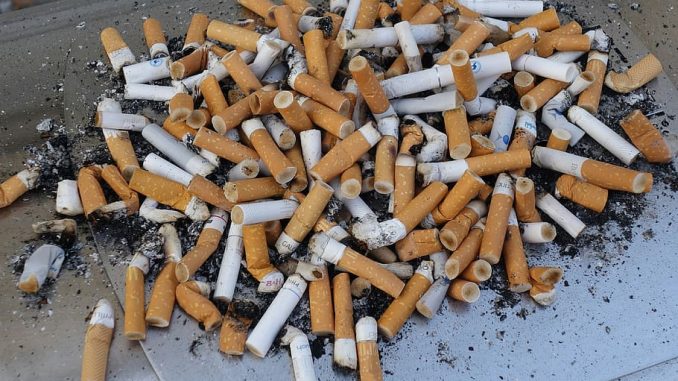
During the wake of crackdowns on the tobacco and vape industries, New York State democratic lawmakers are aiming to nip butts in the bud.
The Tobacco Product Waste Reduction Act, introduced by Assemblywoman Ellen Jaffee and State Senators Elizabeth Krueger and Todd Kaminsky, seeks to ban the sale of single-use cigarette filters, commonly referred to as “butts.”
“Cigarette butts are everywhere — littering our streets, our parks and our waterways, and spreading plastic pollution and toxic chemicals into our environment and our food supply,” Krueger said in a Democrat & Chronicle article. “It’s clear that we need to act.”
The rationale behind this proposed ban is that single-use filter cigarettes pose significant environmental and health concerns.
Cigarette butts are the most collected item across the globe in beach and waterway cleanup efforts. Studies have estimated that 845,000 tons of cigarette butts are littered annually worldwide. Environmentalists note that this significantly adds to our pollution problem since most cigarette filters are made of cellulose acetate, a type of non-biodegradable plastic.
There is also a misconception that filters make puffing on cigarettes safer by sifting out the toxins. In reality, evidence suggests that ventilated filters have contributed to higher risks of lung cancer, according to a 2014 report from the U.S. Department of Health and Human Services’ Office of the Surgeon General.
The ban would also apply to attachable butts for electronic cigarettes, for single-use e-cigarettes contain lithium-ion batteries and dangerous liquid nicotine.
“The ban will be enforced in tobacco-selling businesses in the same way that current tobacco laws are enforced,” said Justin Flagg, the communications director for State Senator Krueger. “State or local health departments or, in the case of New York City, any other city agency including the police, will be able to issue civil penalties.”
While single-use filter cigarettes would be illegal to sell, they will still be legal to smoke in New York.
The latest action of this bill was on Jan. 14 where it was referred to the State Senate Health Committee. Currently, the bill is still being considered by the Health Committee.
If passed, the ban would take effect on Jan. 1, 2022. According to Flagg, this would give cigarette-selling businesses plenty of time to sell back their stock.
However, some tobacco-selling businesses think that lawmakers should butt out.
Lou Asher, the operations manager of Smokes 4 Less — a small family-owned tobacco operating in Ulster, Orange and Dutchess Counties — firmly believes this ban “is not a good idea.”
“Cuomo is a businessman, so I think he would understand how many jobs would be lost [if this bill passes],” Asher said. “If you’re going to outlaw [single-use filters] you are not going to have legal tobacco sales in businesses. I guess the state doesn’t want billions of dollars in taxes.”
Asher also pointed out that many cigarettes purchased in New York are already bought illegally from out of state due to high taxes on cigarettes and that, if this ban passes, people are going to find a way to get what they want.
“We have also seen a big drop in smoking rates across the state driven by those same high taxes. In other words, the taxes are working,” Flagg said. “I would not be surprised to see people smuggling filtered cigarettes if this ban goes into effect, but I think on the whole we will see compliance, and that means a big reduction in cigarette butt litter and continued downward pressure on smoking rates.”
Nevertheless, Asher believes that the law could still force some tobacco retailers to close.
“I feel like they’re attempting to create a solution to a problem that will take care of itself,” Asher said, referring to the steady decline of cigarette purchases in New York State.
There has to be a better way to deal with this issue.”

